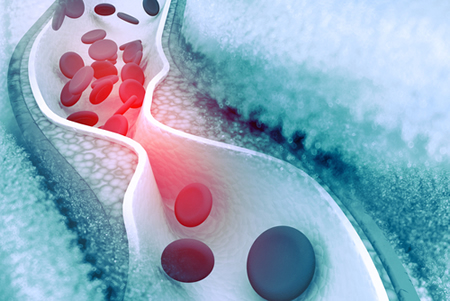A mouse model of chronic stress, depression, and anxiety has been used to investigate their impact on the effectiveness of drugs that lower cholesterol.
Research has shown that individuals suffering from severe stress, depression, and anxiety have a higher chance of developing cardiovascular disease. “The risk of developing cardiovascular disease increases in proportion to depression severity,” said Özlem Tufanli Kireccibasi, PhD, a postdoctoral fellow at the Cardiovascular Research Center at NYU Grossman School of Medicine in New York, and lead researcher of the study. “When both a major depressive disorder and cardiovascular disease are present, the prognosis is worse for both conditions.”
To investigate the effect of stress, depression, and anxiety on the effectiveness of cholesterol-lowering drugs, the researchers used a new mouse model. The mice lacked a low-density lipoprotein receptor (LDLr), which is required to clear LDL cholesterol from the body. LDL cholesterol is often referred to as bad cholesterol, as high levels of LDL cholesterol in the blood increase the risk of developing coronary artery disease.
As is the case with humans that lack the LDLr, the mice are prone to develop plaque build-ups in their arteries and aggressive cardiovascular disease. The plaque build-ups can be unstable, causing parts to break away which can lead to blood clots, which can cause strokes and heart attacks. The researchers mimicked human plaque build-ups in the arteries by feeding the mice an LDL-rich diet for 24 weeks.
The mice were divided into two groups, one of which was exposed to social stress, and the other served as the control group. Social stress occurred by placing mice in living spaces with larger, aggressive mice for short periods each day over a 10-day period. The researchers then evaluated the mice after each stressful event for social avoidance and behaviors associated with depression and anxiety. Those mice were then further divided into two groups – those that were susceptible to depression-like and anxiety-like behaviors and those that were resistant and were able to cope with the stress.
Previous research has shown that the arterial plaques in LDLr-deficient mice became less inflammatory and more stable after treatment with LDL-reducing medications. The mice in the susceptible group and the control group were then treated with LDL-reducing medications for a period of three weeks.
The researchers assessed the mice to identify changes in the number of inflammatory cells in the plaque, the levels of inflammatory monocytes circulating in the blood, and the number of bone marrow cells – the precursors to the immune cells that are abundant in plaque.
Compared to the control group, the susceptible mice had 50% more immune cells within the arterial plaque, twice the number of circulating monocytes, an 80% increase in immune-cell precursors in bone marrow, and less collagen in the plaque – collagen makes the plaque more stable. The mice exposed to social stress had similar reductions in lipid levels as the control group after treatment.
“The major finding is that repeated stress and the physiological and behavioral effects of hostile interactions (social defeat) appear to prevent the full beneficial changes to plaques that should be induced by lipid-lowering medications,” said Kireccibasi.
The findings of the research were presented at the American Heart Association event, Vascular Discovery: From Genes to Medicine Scientific Sessions.
